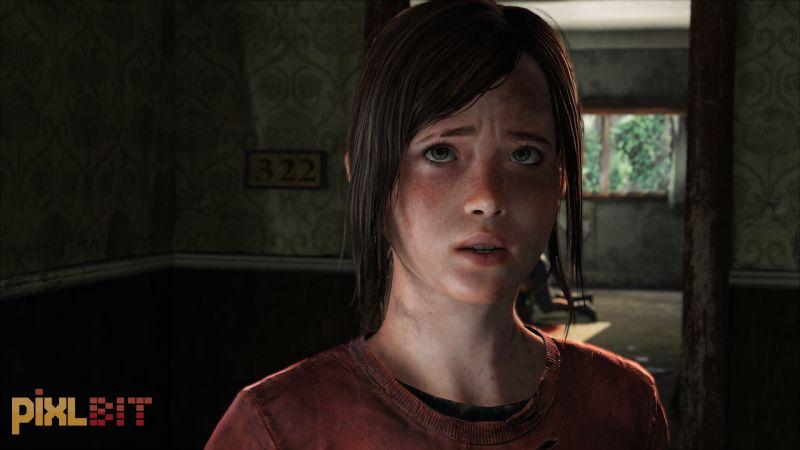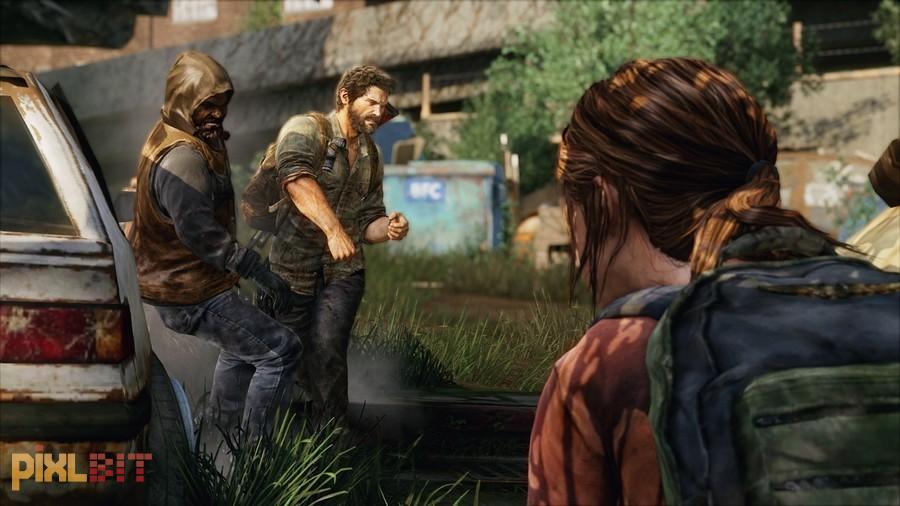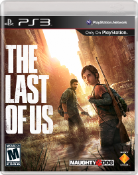Great review Julian! I went into your article with a bit of fear in regards to having even the slightest spoiler, but you nailed it and you were also 100% spoiler free! Good job, I can't wait to get my hands on this game!
The Last of Us Review
|
|
See PixlBit's Review Policies

On 06/26/2013 at 01:00 PM by Julian Titus Deep down, we're all just animals. |

Any PS3 owner that is looking for a mature, character-driven game.
Since finishing The Last of Us, I’ve been sitting at my desk agonizing over this review. Thinking over my time with the game, I’m filled with conflicting emotions that I now have to distill into something cohesive for you fine readers. To say that this is the most impactful game I’ve played so far this year would be a grotesque understatement, but The Last of Us is not without its faults, and to gloss over them would be disingenuous. I call this “The Reviewer’s Lament”: having to fight the urge to gush for a thousand words and instead give a proper account of my experience with this game. My hope is that, even if it reads a little rough around the edges, it will still be entertaining, which is The Last of Us in a nutshell, really.
Taking place over the course of a year, The Last of Us is a tale of what happens after mankind survives the zombie (well, zombie-ish) apocalypse. This isn’t a case of something like The Walking Dead where people are getting by a few months after society collapses. This is what the world looks like when humans have been struggling to stay alive for many years in the wake of catastrophe. Bleak, unforgiving, and heart-wrenching, I was impressed at this very unique setting for a genre that is always just on the edge of being played out.
The story centers on Joel, a haggard Texan who went through the hell of the outbreak that led to the end of the world as we know it and a young girl named Ellie. Ellie has only known what it’s like to live with the constant fear of danger from both the infected, mindless humans and the roving packs of bandits and hunters who, at the end of the day, are just trying to survive like everyone else. Joel is tasked with escorting Ellie across the country to hook up with the Fireflies, one of the only organized groups still trying to create some semblance of civilization in a chaotic world.
Don’t let the mention of an escort mission scare you; The Last of Us is unlike any of the games that might come to mind at the utterance of that word. This is a game that blends genres and pulls mechanics from all manner of sources. Part stealth, part traversal and exploration with a liberal amount of inventory management and shooting, it’s difficult to pigeon-hole this title. When everything works in The Last of Us it creates a tense, organic experience that needs to be played to be believed. When it doesn’t, well… let’s just say that I’m happy for the generous checkpointing system.
Naughty Dog has really made some amazing advancements in their animation tech with this generation, and all the tricks they learned from three blockbuster Uncharted games comes into play here. Joel maneuvers through the environments naturally, and easily transitions from a stealthy crouching walk into sliding through a tight gap between debris. He has such a great amount of believability that it’s easy to slip into his shoes, which makes every injury and every kill that much more intense.
It’s this sense of realism and believability that makes The Last of Us work so well. The environments rarely give that telltale impression of a level designer’s hand all over them, as I’ve come to expect from other games. Yes, there is usually only one way for Joel and Ellie to make it through a particular area, but the way that they navigate through that point always looks like a real path that they would take. It makes sense when the upper areas of a building are barricaded with file cabinets, as people have been trying to survive in these places for years. Even the convenient ladder or wood palette seems perfectly natural, and it’s easy to imagine another set of survivors passing through the same locations as Joel and Ellie.
This sense of exploration and discovery is one of my favorite parts of the game. It’s so common for games like this to have a distinct funnel to the environments, lest the player step out of bounds and break everything. I was amazed at how dense every location was, oftentimes with little tangible reason to go far off course. Again, this added a weight to the realism of the locales. After two decades of desolation, would every room really be full of helpful items? No, I think not. Naughty Dog has crafted a massive game that manages to look amazing at every moment. The Last of Us truly transcends what we believe to be possible on current generation consoles, and even in the most stressful moments I had to applaud the designers for such a well-crafted exploratory element.
For the first half of the game, The Last of Us is perfectly paced, blending the exploration, stealth, and story elements together in such a seamless way that it becomes difficult to find a proper stopping point. I was in admiration of the restraint shown by the designers, because it really seemed like this was going to be a game where combat really took a backseat to the narrative and exploration. This was a very good thing, because I didn’t think the combat was very good to begin with.
Then the game loses its way in the back half of the story.
As I said, I wasn’t a fan of the combat in this title. The controls are counterintuitive to what I expect for a game with gunplay, and the act of shooting a gun just never felt right in The Last of Us. The game emphasized stealth in the early sections, but this was a binary affair; every enemy in the area goes on full alert if Joel makes one wrong move, no matter how quickly he silences the person that saw him. On top of that, enemies materialize out of nowhere once Joel has been exposed, usually ending up in a death and a quick reload. At certain points it’s possible to avoid combat completely, while other times it’s impossible to move on without slaughtering everyone in the area, even if Joel and Ellie reach the place they need to get to. However, the game does a poor job of communicating when the combat zone is the former and when it’s the latter.
Still, I was dealing with the subpar combat mechanics and the iffy stealth elements just fine, right up until the point when The Last of Us turns into a generic third person shooter. There comes a moment where it starts throwing pitched gunfight after pitched gunfight at the player, with little time to rest or gather extra ammo and items. Once again, the message that the game tries to convey to the player is at odds with the actual gameplay, as the concept of running and hiding from human hunters gets tossed out the window. In these sections, the enemies have a preternatural ability to know exactly where Joel is at all times. They’re crack shots, and this becomes especially frustrating since enemies in this game soak up damage like a sponge. When it takes two to three blasts from a shotgun at pointblank range to take someone down something is very wrong.
As aggravating as the combat gets in the final half of the game, the real stars here are the characters. If this were a lesser game I might have stopped playing, but I needed to see what happens to Joel and Ellie in the end. Simply put, these are two of the most empathetic, flawed, and human characters I’ve ever encountered in a game. Kudos go to the performance capture work and the vocal talents of Troy Baker and Ashley Johnson, but this game would be nothing without the amazing script. This is a game about the slow building of trust between two very different people, set against a backdrop where no one is really a good person. When we’re stripped down to the need to survive, morality goes out the window, and The Last of Us demonstrates this brilliantly. Even the small supporting cast has more depth of character and emotional resonance than the main characters in most other story driven games. I don’t know what black magic Naughty Dog has used to display the spark of life and emotion into their renderings of the human eye, but there is a subtlety of emotion found in this game that is truly next level.
My experience with The Last of Us is something I will not soon forget. This isn’t just a candidate for game of the year considerations—it’s a candidate for game of the generation discussion. The fact that it has so many issues with its combat and chooses to focus on that part of the game for so long towards the end may detract from my score, but it doesn’t detract from how important this work is. If this is the only PS3 game you play this year you really can’t do much better.














Comments